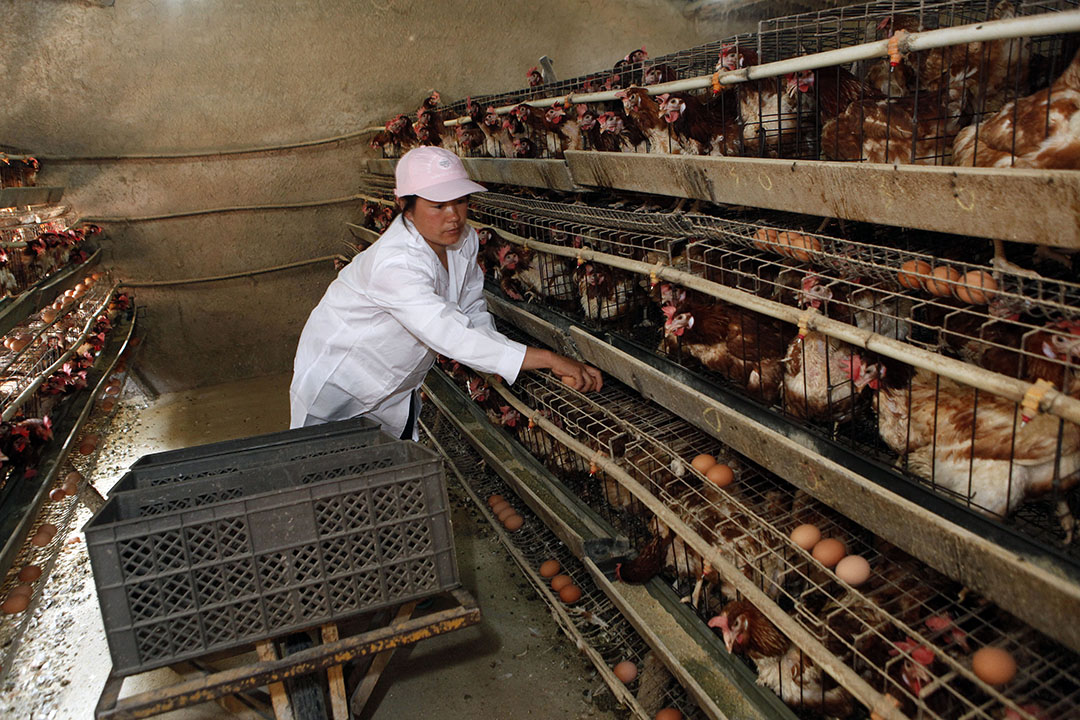- This topic is empty.
- AuthorPosts
- January 21, 2025 at 11:18 pm #543423

Poultry production refers to the process of breeding and raising domesticated birds, such as chickens, turkeys, ducks, and geese, for the purpose of producing meat, eggs, or feathers.
It plays a significant role in global food security, providing essential protein sources and contributing to the livelihoods of millions of people worldwide.
Poultry farming has evolved over the years, with advancements in breeding techniques, feed management, and disease control ensuring that poultry remains an affordable and efficient source of nutrition.
Understanding the fundamentals of poultry production is crucial for farmers, as it helps optimize productivity, maintain animal welfare, and ensure sustainable practices.
1. The importance of poultry production
Poultry production is a key sector in the agricultural industry, offering a reliable source of food and income for both small and large-scale farmers.
It is one of the most efficient forms of livestock farming, providing high-quality protein in the form of eggs and meat.
The global demand for poultry products continues to rise due to population growth, urbanization, and changing dietary preferences.
As a result, poultry farming has become an integral part of the global agricultural economy, supporting rural development, creating employment opportunities, and contributing to food security worldwide.
2. Types of poultry farming systems
Poultry farming can be broadly classified into two main systems: extensive and intensive. In extensive systems, birds are raised in free-range conditions, where they are allowed to roam and forage for food in open spaces.
This system is often used in smaller-scale or organic farming, where the birds are allowed to express natural behaviors.
On the other hand, intensive poultry farming involves raising birds in controlled environments, such as poultry houses or cages, where they are provided with a balanced diet and monitored for growth and health.
This method is common in large-scale commercial poultry production, as it allows for higher yields and more efficient management of resources.
3. Breeding and genetics in poultry production
Breeding and genetics are crucial factors in poultry production, as they determine the quality and productivity of the flock. Selective breeding has led to the development of high-yielding poultry breeds that are more resistant to diseases and capable of producing more meat or eggs.
In commercial poultry production, the choice of breeding stock is based on traits such as growth rate, feed efficiency, egg production, and disease resistance.
Advances in genetics have also allowed for the development of hybrid breeds that combine desirable traits, further improving productivity and profitability. Proper breeding management is essential to maintaining a healthy and productive flock.
4. Poultry feed and nutrition
Feeding and nutrition are essential components of poultry production, as they directly influence the health, growth, and productivity of the birds.
Poultry require a balanced diet that includes proteins, carbohydrates, fats, vitamins, and minerals to support their growth, reproduction, and overall health.
Commercial poultry feed is specially formulated to meet these nutritional requirements, with specific formulations for different stages of growth, such as starter, grower, and finisher diets for broilers, or layer diets for egg-laying hens.
Proper feed management ensures that poultry receive the nutrients they need for optimal production while minimizing waste and maximizing efficiency.
5. Disease management in poultry production
Disease management is a critical aspect of poultry production, as poultry are susceptible to various infectious diseases that can affect their health and productivity. Common poultry diseases include avian influenza, Newcastle disease, and coccidiosis.
Effective disease prevention and control practices, such as vaccination, biosecurity measures, and proper sanitation, are essential to maintaining a healthy flock.
In commercial poultry operations, disease outbreaks can lead to significant economic losses, so it is important to implement strict disease management protocols to protect both the birds and the overall production system.
Early detection, isolation of infected birds, and prompt treatment are key to minimizing the impact of disease on poultry production.
Poultry production is a vital sector of the global agricultural industry, providing essential food sources and economic benefits to millions of people.
From understanding the importance of the industry to mastering techniques in breeding, feed management, and disease control, poultry production requires careful planning and management to be successful.
As demand for poultry products continues to rise, innovations in production methods and sustainability practices will play an increasingly important role in meeting global needs while maintaining animal welfare and environmental responsibility.
Whether practiced on a small scale or in large commercial operations, poultry production remains an essential part of the agricultural landscape.
- AuthorPosts
- You must be logged in to reply to this topic.

